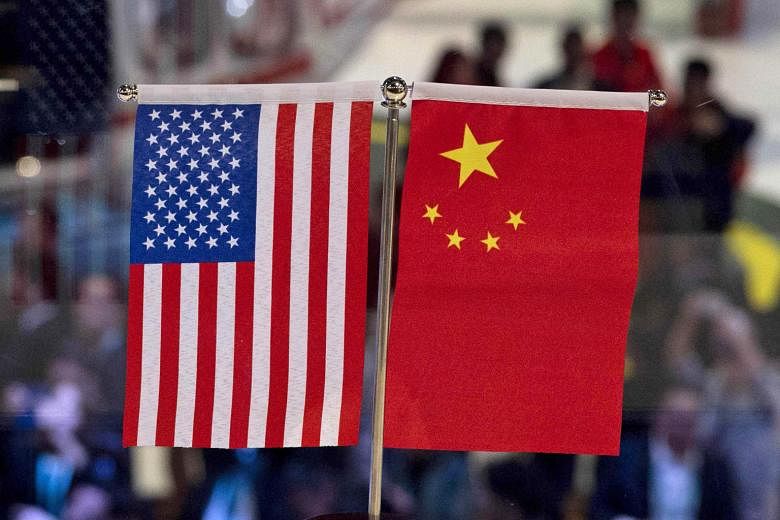Companies spooked by the trade war are holding off on investments or cancelling them entirely, according to a survey out yesterday.
It also found that firms have started looking into diversifying their presence in other countries and adjusting supply chains to secure components outside the United States or China.
A small number are even contemplating relocating some or all of their manufacturing operations out of China and the US, with 5 per cent of companies thinking of leaving China entirely.
The survey, conducted by market research consultancy Blackbox Research last month for the American Chamber of Commerce (AmCham) in Singapore, polled 179 member companies that have a presence in South-east Asia. Most were American firms.
AmCham Singapore executive director Ann Yom Steel told The Straits Times: "We are certainly seeing the impact of the US-China trade war reverberating on the business decisions of firms everywhere."
But she noted that one in three companies did not change their strategies, which could be a sign of resilience, as these companies have been in the Asia-Pacific region for decades.
Because of that resilience, the approach for these firms tends to be less reactive and more long term, added Ms Yom Steel.
Mr Gerry Mattios, expert vice-president in Singapore at consultancy Bain and Company, told a panel discussion on the survey's release that while firms may be mulling over different strategies, it is still logistically difficult to move manufacturing operations.
He said: "We have to remember that shifting manufacturing is actually very expensive and not easy, whether it is about supplier quality, capacity issues or Customs regulations with countries that they have not done business with before. Making those decisions is not something that can happen overnight."
While some market analysts see the shifting of supply chains as a potential upside of the trade war for Singapore and the region, Mr Mattios said some bosses are looking at accelerating investments into automation elsewhere instead.
"If I am not able to manufacture in my factory in China any more because of labour arbitrage, shouldn't I be investing back in automation back in the United States, since I was already planning to do that anyway," he said.
Baker McKenzie Wong & Leow associate Cindy Owens said another difficulty was the availability of skilled labour.
The 90-day ceasefire struck between the United States and China at the recent Group of 20 summit is also unlikely to resolve the intellectual property rights protection issues, said Ms Owens, though it is a positive sign that both sides are willing to come to the table.
The hour-long panel discussion at the AmCham office in Scotts Road ended on a cautiously optimistic note, with one panellist noting that the hard stance of the trade war could be an opportunity to change China's economic trajectory for the better by allowing better market access to foreign companies, for example.
Their optimism was mirrored by the survey results - 56 per cent of the firms polled maintained a positive outlook for the coming six months despite concerns over global trade tensions.



